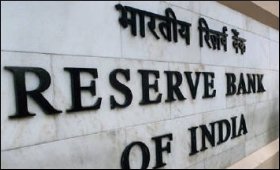|

|
RBI announces capital curbs to stabilise rupee
|
|

|
|
| Top Stories |
 |
|
|
|
SME Times News Bureau | 16 Aug, 2013
In a bid to check the drain on foreign exchange reserves and stabilise the rupee, the Reserve Bank of India has imposed partial capital controls on companies and individuals, reduced the limit for overseas direct investment (ODI) by domestic companies, other than oil PSUs, under automatic route from 400 percent of the net worth to 100 percent.
"Reduced the limit for Overseas Direct Investment (ODI) under automatic route for all fresh ODI transactions, from 400% of the net worth of an Indian Party to 100% of its net worth. This reduced limit would also apply to remittances made under the ODI scheme by Indian Companies for setting up unincorporated entities outside India in the energy and natural resources sectors," RBI said in a press notification.
The central bank, however, exempted state-run Navratna companies, including Oil India and ONGC Videsh, to ensure that its moves do not cripple energy security. "This reduction in limit, however, would not apply to ODI by Navratna PSUs, ONGC Videsh Limited and Oil India in overseas unincorporated entities and incorporated entities, in the oil sector," it said.
RBI lowered overseas remittances by locals to $75,000 a year from $200,000, and prohibited investments in overseas property, dashing wealthy Indians' dreams of owning homes abroad. However, those in genuine need of foreign exchange beyond $75,000 per year could apply to the central bank for permission.
"Reduced the limit for remittances made by Resident Individuals, under the Liberalised Remittance Scheme (LRS Scheme), from USD 200,000 to USD 75,000 per financial year. Resident Individuals have, however, now been allowed to set up Joint Venture (JV)/Wholly Owned Subsidiary (WOS) outside India under the ODI route within the revised LRS limit," the notification said.
In addition, "While current restrictions on the use of LRS for prohibited transactions, such as, margin trading and lottery would continue, use of LRS for acquisition of immovable property outside India directly or indirectly will, henceforth, not be allowed," it added.
RBI also imposed further restrictions on gold imports, including a requirement that 20 percent of each consignment should be earmarked for exports. It banned import of gold coins and medallions altogether.
|
|
|
| |
|
|
|
|
|
|
|
|
|
|
|
|
|
|
| |
| Customs Exchange Rates |
| Currency |
Import |
Export |
US Dollar
|
84.35
|
82.60 |
UK Pound
|
106.35
|
102.90 |
Euro
|
92.50
|
89.35 |
| Japanese
Yen |
55.05 |
53.40 |
| As on 12 Oct, 2024 |
|
|
|
|
|
|
|
| Commented Stories |
 |
|
|
|
|
|
| |
|